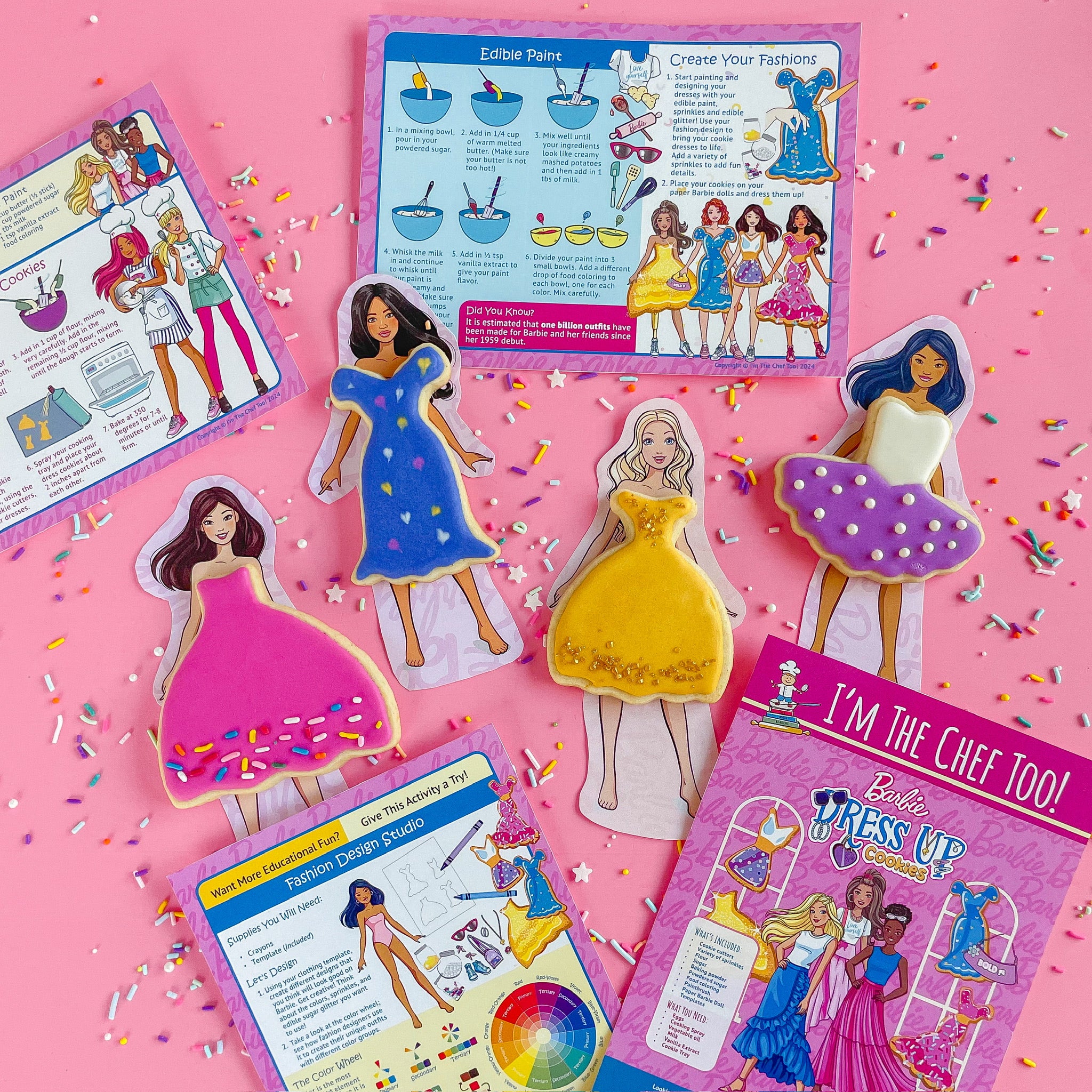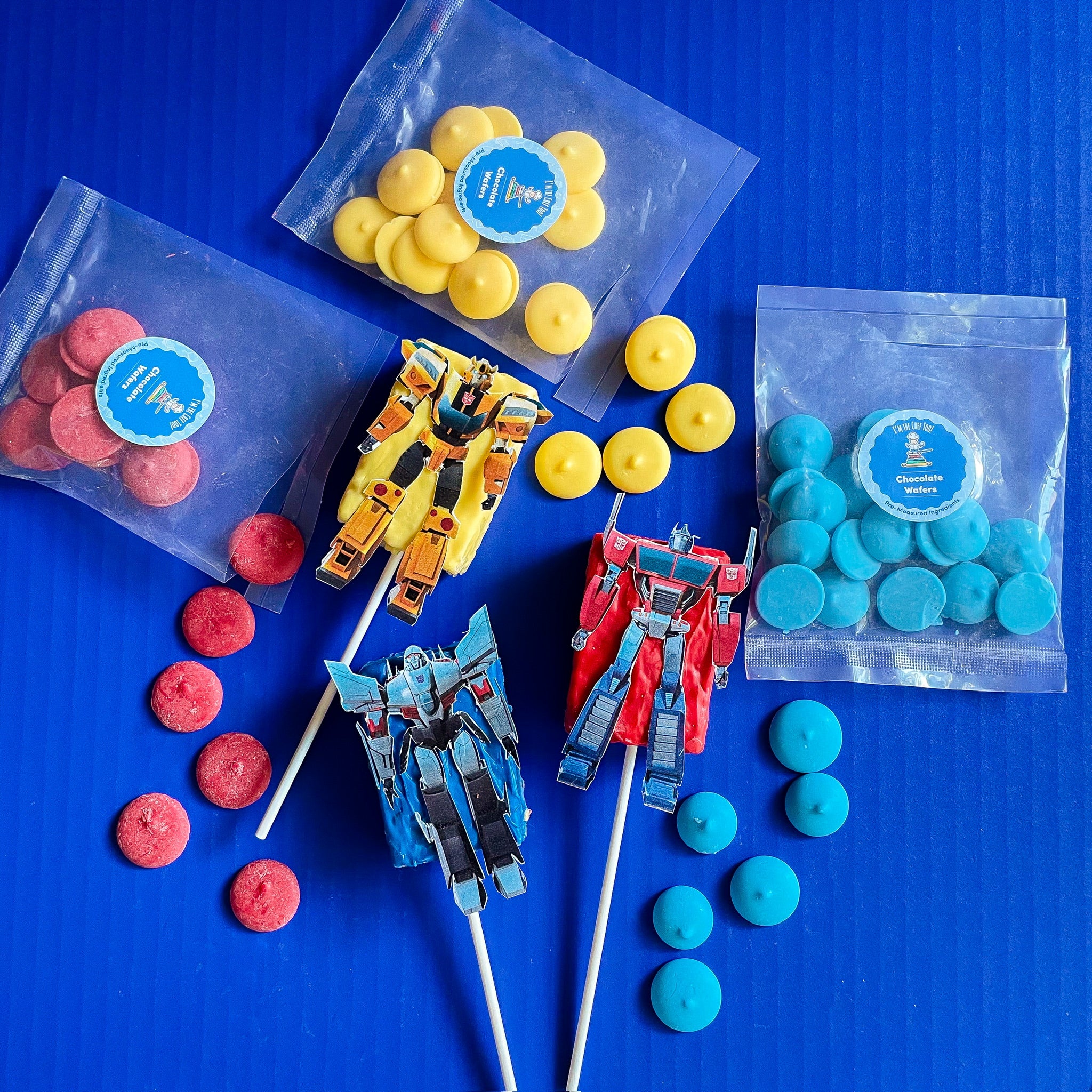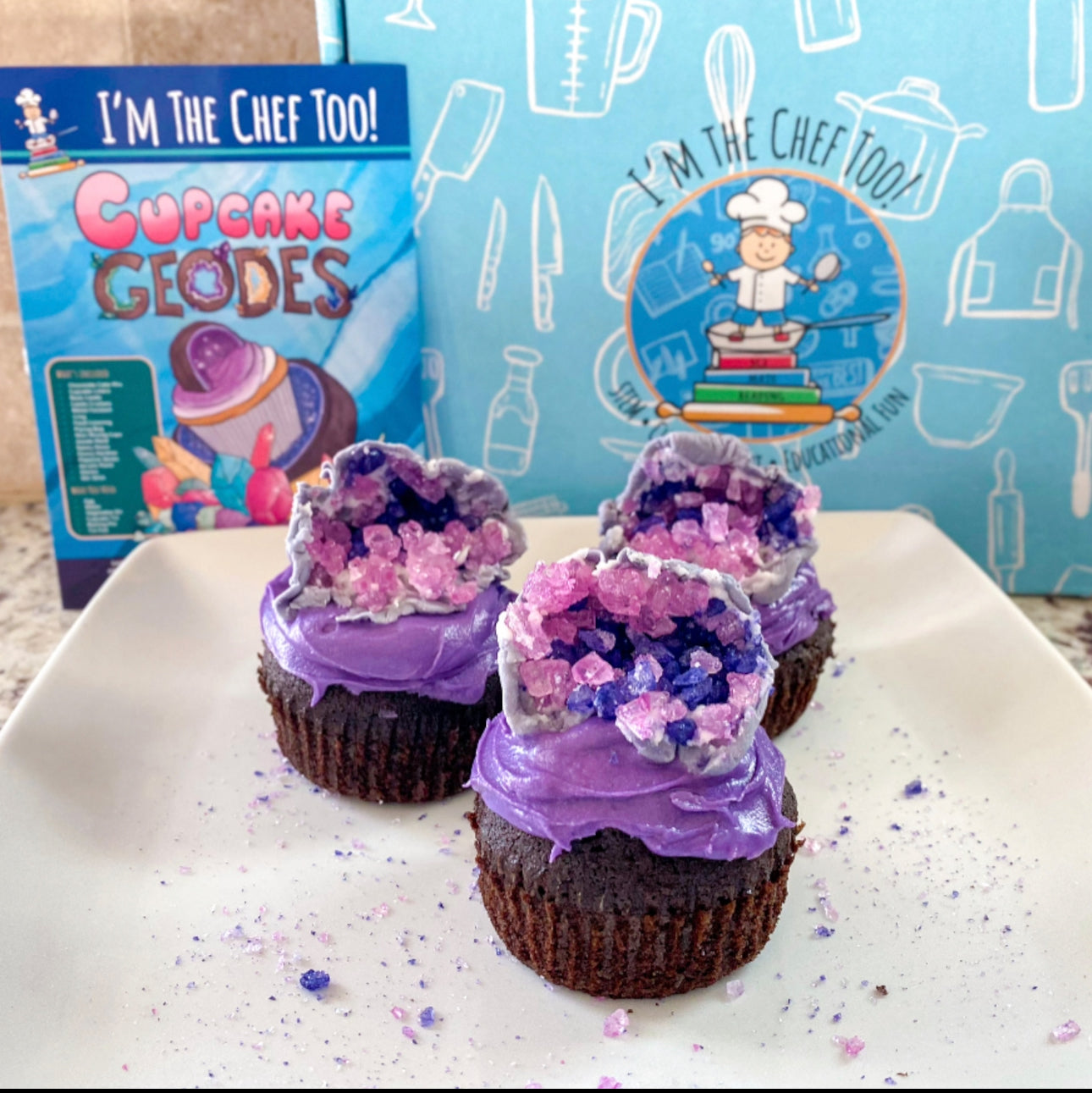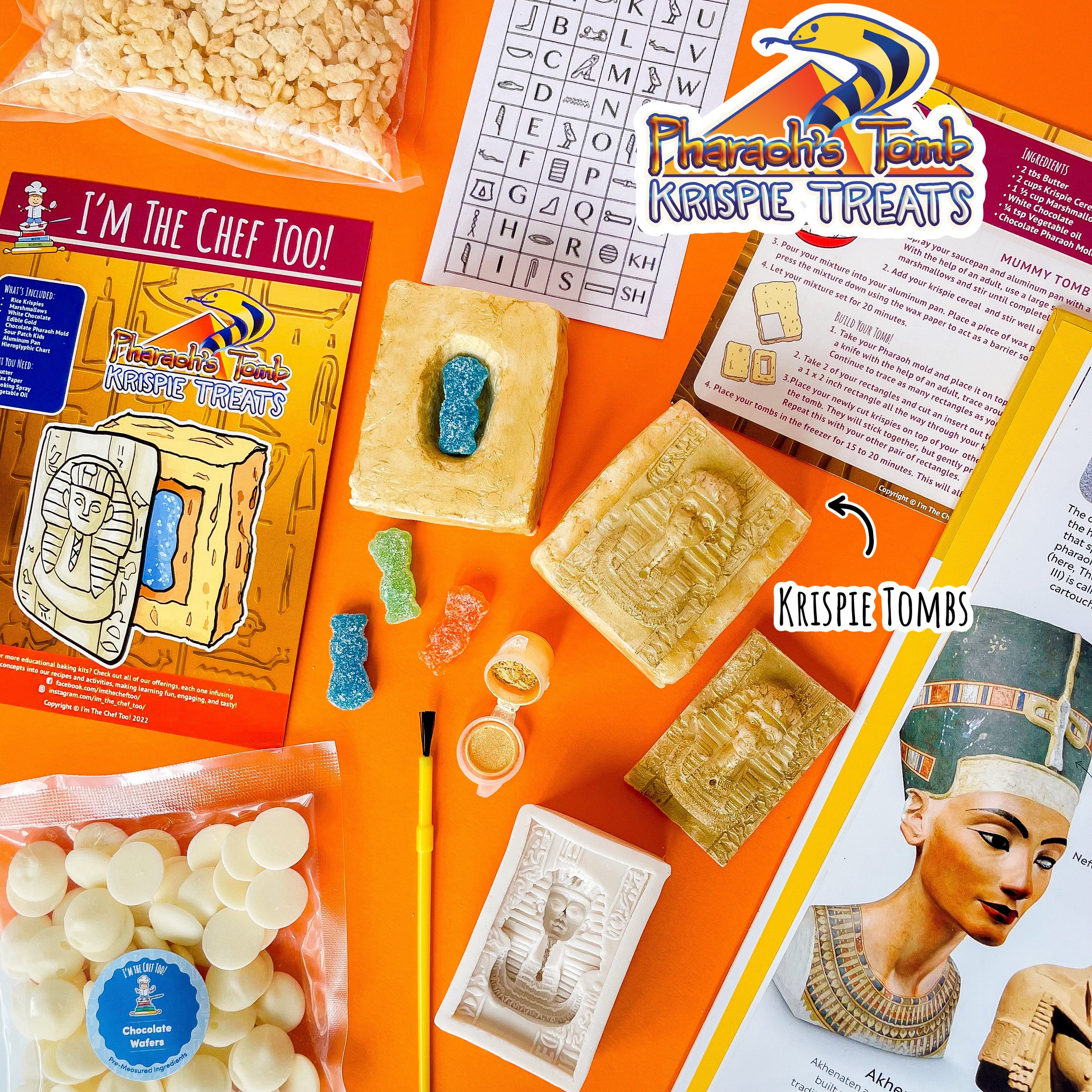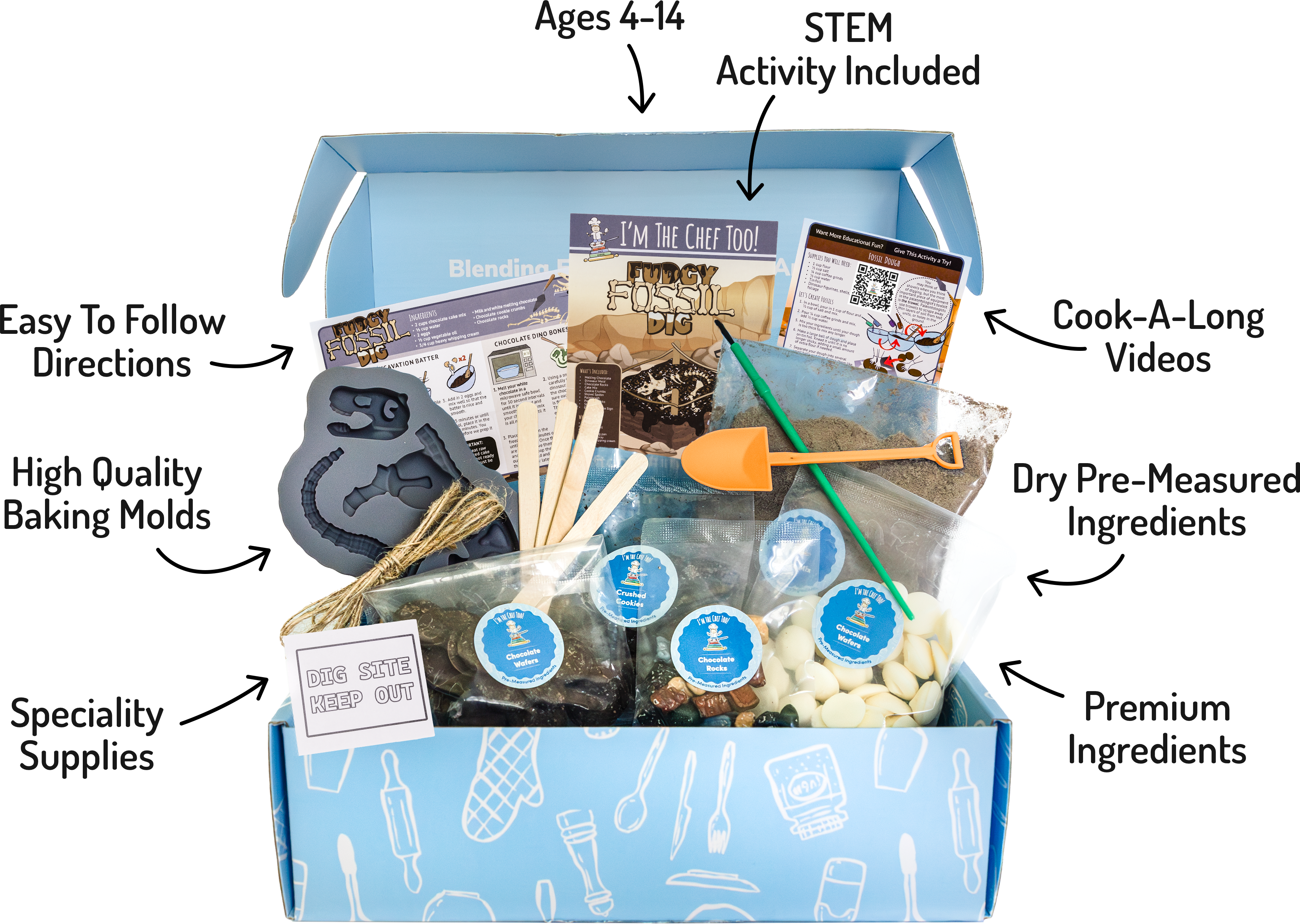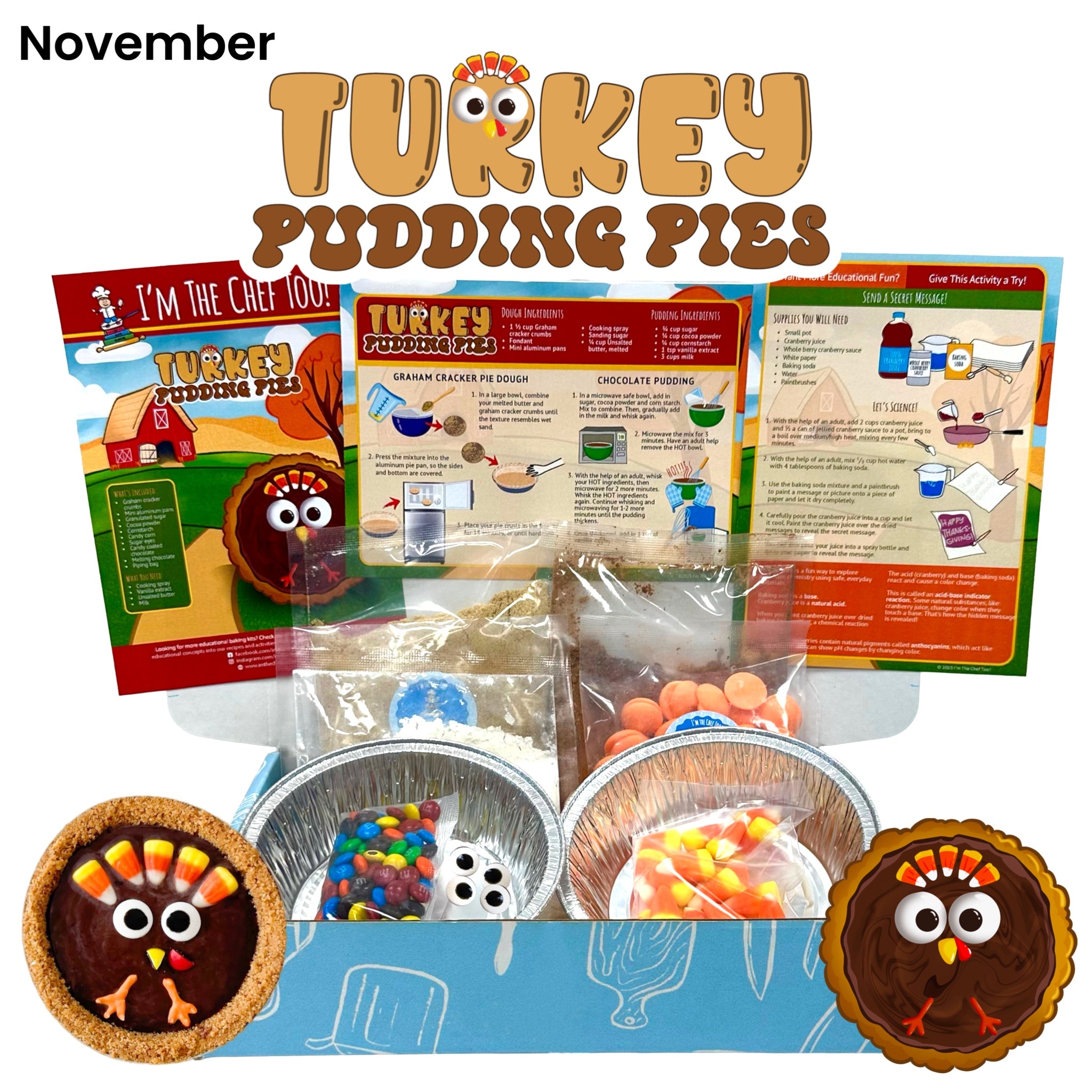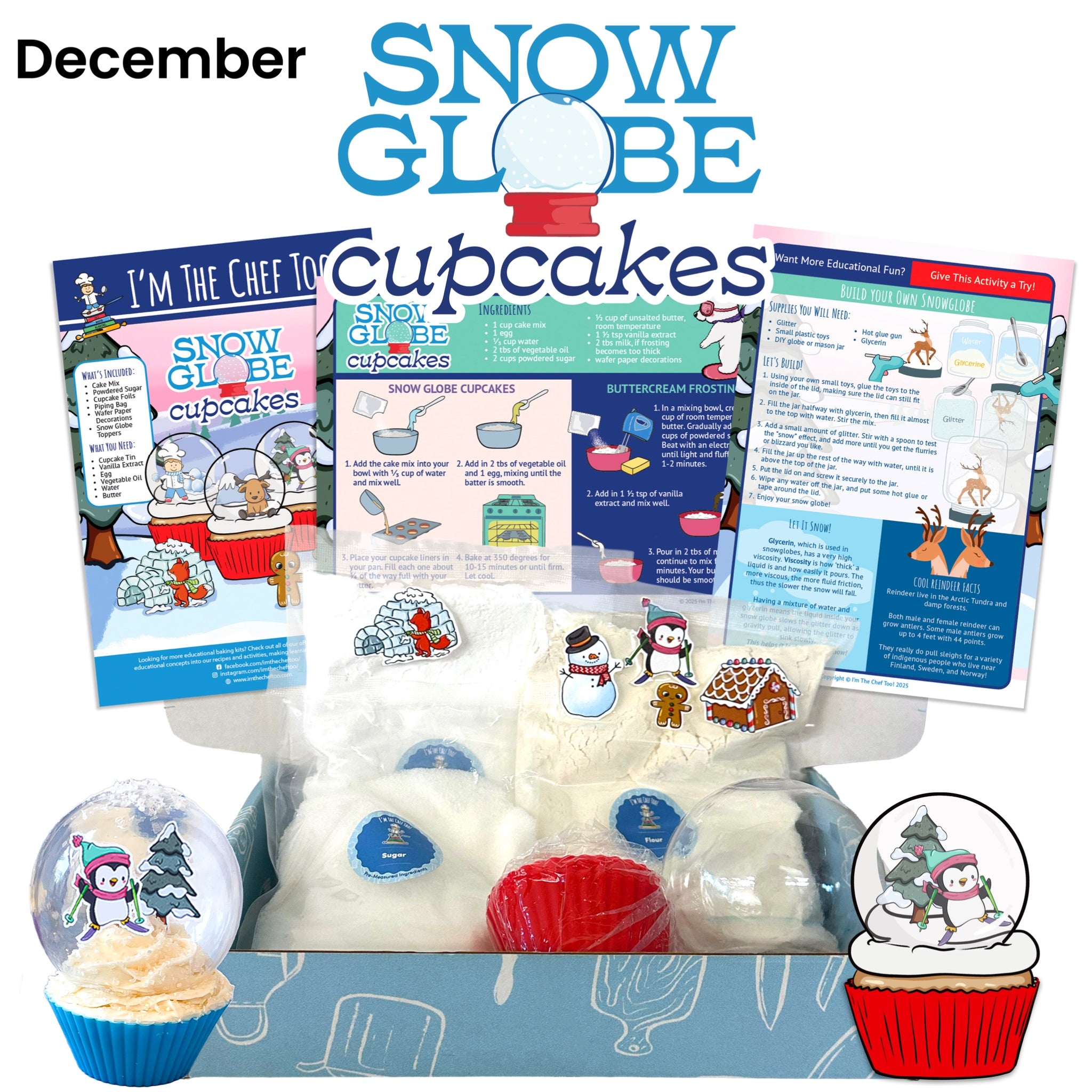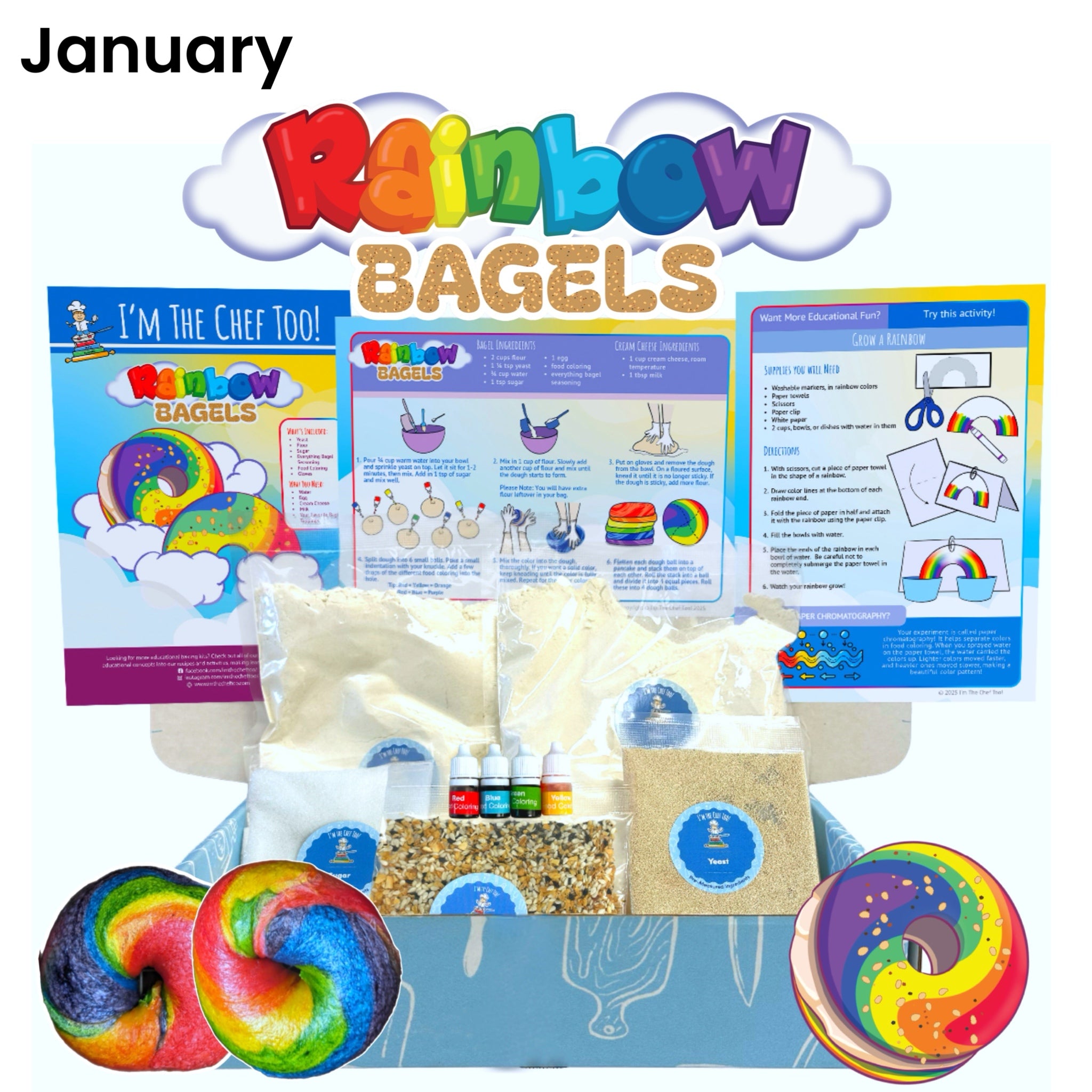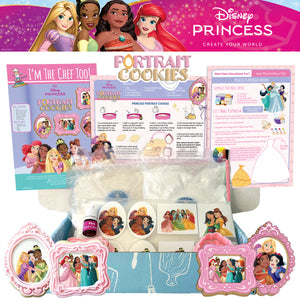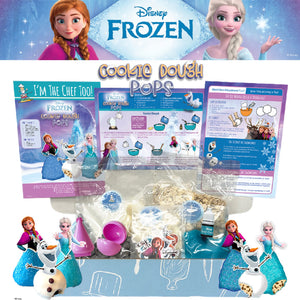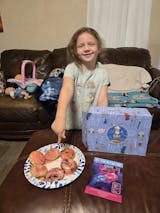Table of Contents
- Introduction
- The Natural Curiosity of Young Learners
- Core Benefits of Early STEM Education
- Beyond STEM: The Power of STEAM
- Overcoming Misconceptions About Early STEM
- Practical Ways to Incorporate Early STEM at Home
- The I'm the Chef Too! Approach to STEM Learning
- Conclusion
Imagine a child, barely old enough to tie their shoes, meticulously arranging blocks to build a towering structure. They test its stability, adjust a piece here, add another there, perhaps even drop a toy car from the top to see if it makes it to the bottom. What might look like simple play is, in fact, a profound demonstration of innate scientific curiosity and early engineering thought. These aren't just cute moments; they are the earliest sparks of what we call STEM – Science, Technology, Engineering, and Mathematics – in action.
In a world that's constantly evolving with breathtaking technological advancements, the foundational skills nurtured by STEM education are no longer just an advantage; they are essential life skills. But when we talk about STEM, many parents and educators might picture complex equations or advanced robotics. The truth is, the most impactful STEM learning often begins long before formal schooling, right in the comfort of our homes and early learning environments. This post will delve into the remarkable benefits of early STEM education, exploring how introducing these concepts to young children can ignite a lifelong love for learning, build crucial cognitive and social skills, and prepare them for a future we can only begin to imagine. We'll uncover how simple, hands-on activities can transform everyday moments into powerful learning opportunities, fostering not just academic readiness, but also confidence, creativity, and a deep understanding of the world around them.
Introduction
Have you ever watched a toddler explore a new object, turning it over, shaking it, perhaps even tasting it? This isn't just random behavior; it's a child's natural inclination towards scientific inquiry. From the moment they're born, children are inherently curious, driven to understand how things work and why. This innate drive to observe, question, and experiment forms the bedrock of STEM learning. Yet, a common misconception persists that STEM is reserved for older students, for high school labs, or university lecture halls. This couldn't be further from the truth.
The purpose of this blog post is to illuminate the profound and often underestimated impact of introducing STEM concepts during a child's earliest years. We will explore how early exposure to science, technology, engineering, and mathematics through engaging, hands-on activities can significantly influence a child's cognitive development, problem-solving abilities, and overall academic and personal success. We believe that by blending food, STEM, and the arts, we can create one-of-a-kind "edutainment" experiences that spark curiosity and creativity, facilitate family bonding, and provide a much-needed screen-free educational alternative. Our unique approach, developed by mothers and educators, is all about teaching complex subjects through tangible, hands-on, and delicious cooking adventures. By understanding the multifaceted benefits of early STEM education, parents and educators can confidently foster environments where curiosity flourishes and foundational skills are built, setting children on a path of joyful discovery and lifelong learning.
The Natural Curiosity of Young Learners
Children are born scientists, engineers, and mathematicians. They constantly observe, hypothesize, test, and analyze. A baby systematically tests physical hypotheses when they drop a toy repeatedly from their high chair, studying gravity and cause-and-effect. A preschooler building a fort is engaging in structural engineering, understanding balance, weight, and spatial relationships. When a child divides their cookies evenly among friends, they are practicing early math concepts like division and fairness. This inherent curiosity is a powerful learning tool, and early STEM education simply channels this natural inclination into structured, yet playful, learning experiences.
Tapping into this innate curiosity with STEM education nurtures critical thinking, helps students think about the world around them, and sets the stage for future academic success. It’s also a fun approach to learning, which is so important for keeping children engaged. At I'm the Chef Too!, we see this natural curiosity every day when kids eagerly dive into our kits, wondering how their ingredients will transform or how their creation will take shape. It’s this wonder that truly drives learning, making it feel less like a chore and more like an exciting adventure.
Core Benefits of Early STEM Education
The advantages of integrating STEM into early childhood education are far-reaching, impacting not just academic performance but also critical life skills. These benefits lay a robust foundation that children will build upon throughout their educational journey and into their adult lives.
Fostering Critical Thinking and Problem-Solving
One of the most significant benefits of early STEM education is its ability to cultivate critical thinking and problem-solving skills. Unlike rote memorization, STEM activities encourage children to ask "why" and "how." When a child tries to build a bridge for their toy cars and it collapses, they don't just give up. They analyze what went wrong, consider different materials or designs, and try again. This iterative process of identifying a problem, brainstorming solutions, testing them, and evaluating the results is the essence of critical thinking.
Think about a simple cooking project: measuring ingredients, understanding proportions, or observing how heat changes food. If a recipe calls for a specific amount of flour and the dough is too sticky, a child might learn to adjust, understanding that sometimes solutions require flexibility and adaptation. These aren't just cooking lessons; they are real-world problem-solving scenarios that build resilience and analytical skills.
Enhancing Cognitive Development
Early STEM education plays a pivotal role in boosting cognitive development. It stimulates various areas of the brain, enhancing abilities in pattern recognition, logic, analysis, and spatial reasoning. Engaging children in hands-on STEM activities promotes curiosity and a deeper understanding of the world around them. For instance, understanding concepts like cause and effect, sequence, and classification are all cognitive skills sharpened through STEM.
When children explore how different ingredients react to create a delicious treat, like in our Erupting Volcano Cakes kit, they are observing a chemical reaction, learning about states of matter, and predicting outcomes. This kind of active engagement, where children are manipulating materials and seeing immediate results, reinforces learning in a way that passive instruction simply cannot. This hands-on, sensory-rich learning environment is precisely what we aim to provide with every I'm the Chef Too! kit.
Building a Strong Foundation for Future Learning
Introducing STEM concepts early helps children develop a strong foundation for future learning. Early math skills, for example, have been shown to be a stronger predictor of later academic achievement than early reading or attention skills. This isn't just about counting; it's about understanding quantities, patterns, and logical sequences. When children are exposed to these concepts in a playful, accessible way, they become less intimidating and more approachable as they advance in school.
By making learning fun and engaging from a young age, children are more likely to pursue STEM subjects in higher education and beyond. This early exposure helps demystify complex topics and builds a sense of confidence and capability. If you're looking for a convenient way to continuously build this foundation, consider joining The Chef's Club. A new adventure is delivered to your door every month with free shipping in the US, ensuring a steady stream of foundational learning experiences.
Cultivating Hands-On, Experiential Learning
Most STEM learning, especially in early childhood, revolves around teaching each subject through hands-on experiences. This kinesthetic learning approach is incredibly effective because it allows children to directly interact with concepts, rather than just reading about them. For instance, building a structure with blocks, mixing ingredients for a recipe, or planting a seed and watching it grow are all experiential learning opportunities.
This active engagement leads to significantly higher retention rates. While traditional methods might yield a 5% retention rate, experiential learning has been shown to boost retention to an impressive 80-90%. This means that the lessons learned through doing are far more likely to stick with children as they grow. Our kits are designed around this principle, providing all the pre-measured dry ingredients and specialty supplies needed for a complete, tangible experience. Ready to make learning stick? You can explore our full library of adventure kits available for a single purchase in our shop.
Boosting Memory Retention
As mentioned, the experiential nature of early STEM activities directly contributes to superior memory retention. When children engage all their senses – seeing, touching, smelling, and even tasting – while learning, the experience becomes more memorable and meaningful. It’s one thing to read about chemical reactions; it’s another entirely to see a delicious mixture bubble and rise in the oven, or to create a vibrant, edible solar system with our Galaxy Donut Kit.
These multi-sensory experiences create stronger neural pathways, making it easier for children to recall information and apply it in new contexts. The joy and excitement associated with these hands-on discoveries further embed the learning, proving that learning can indeed be a delicious and unforgettable adventure.
Nurturing Language and Communication Skills
It might seem counterintuitive, but early STEM education significantly facilitates language development. As children engage in experiments and projects, they encounter new vocabulary related to scientific processes, mathematical terms, and engineering concepts. Describing observations, explaining steps, and asking questions naturally expand their vocabulary and improve their ability to articulate complex ideas.
For example, when discussing the "fizz" of a chemical reaction or the "texture" of a dough, children are learning precise language to describe their sensory experiences. Collaborating on a project also encourages them to communicate their ideas, listen to others, and negotiate, all vital communication skills that transcend academic subjects.
Promoting Collaborative Learning
Many STEM activities, especially those designed for young children, naturally encourage collaborative reasoning and teamwork. Whether it’s two children working together to build a fort or a small group following a recipe, they learn to share ideas, divide tasks, and support each other to achieve a common goal. This ability to work as part of a high-functioning team is instrumental in long-term success, whether in academic settings or future professional environments.
At I'm the Chef Too!, our kits are perfect for fostering family bonding and collaborative fun. Parents and children can work together, learning from each other and strengthening their relationships while creating something delicious. This shared experience makes learning a positive, social activity, building confidence and social skills alongside STEM knowledge.
Preparing for a Tech-Driven Future and Career Readiness
The world our children will inherit is one increasingly shaped by technology and innovation. Experts predict that a significant percentage of future jobs don't even exist yet, and many of those that do will require strong STEM skills. Early STEM education is crucial for preparing children to navigate and contribute to this tech-driven world. It fosters technological fluency, adaptability, and a mindset geared towards continuous learning – skills that are indispensable in nearly every future career path.
By exposing children to the principles of STEM from a young age, we are not necessarily aiming to make every child a scientist or an engineer. Instead, we are equipping them with the critical thinking, problem-solving, and innovative mindset that will allow them to thrive in any field they choose. It's about empowering them to be adaptable, creative contributors to society, ready to tackle challenges with confidence. To give your child the gift of learning that lasts all year, consider a 12-month subscription to our STEM cooking adventures through The Chef's Club.
Beyond STEM: The Power of STEAM
While STEM focuses on Science, Technology, Engineering, and Mathematics, many educators and parents advocate for STEAM, which incorporates the Arts. The "A" in STEAM isn't just about painting or drawing; it encompasses creativity, design, critical thinking, and imagination. Integrating the arts into STEM activities allows children to approach problems with more flexibility, think outside the box, and express their understanding in diverse ways.
For example, when designing a structure, adding an artistic element can encourage children to consider aesthetics alongside functionality. When creating an edible masterpiece, the artistic presentation is just as important as the scientific accuracy of the ingredients. This holistic approach helps students develop soft skills like innovation, visualization, and communication, which are essential for true problem-solving in the real world. At I'm the Chef Too!, our mission is to blend food, STEM, and the arts into one-of-a-kind "edutainment" experiences, recognizing that creativity and scientific inquiry are two sides of the same coin.
Overcoming Misconceptions About Early STEM
Despite the clear benefits, several misconceptions about early STEM education can prevent children from accessing these valuable learning opportunities. Let's address some common myths.
STEM Isn't Just for Older Kids
Perhaps the most pervasive myth is that "real" STEM learning doesn't occur until children are older. As we've discussed, children are inherently scientific and engineering thinkers from infancy. They are capable of making observations and predictions, carrying out simple investigations, collecting data, and beginning to make sense of what they find, all at developmentally appropriate levels. When adults downplay the importance of STEM in the early years, they inadvertently diminish young children's current and future potential. It's crucial to acknowledge that even the simplest play can be a rich STEM experience.
It's Not Just About Computers
Another common misconception is that STEM education equates to more screen time or advanced digital technology. While technology is a component of STEM, early childhood STEM is far more about hands-on exploration and real-world interaction. Block play, gardening, cooking, and even a nature walk are all examples of rich STEM education that require minimal resources and no screens. Our kits, for instance, are designed to be a delightful screen-free educational alternative, bringing hands-on learning directly to your kitchen table.
STEM Enhances, Not Replaces, Other Subjects
Some worry that an emphasis on STEM might detract from other crucial subjects like language arts or social studies. This couldn't be further from the truth. STEM education presents ways to learn that go beyond the memorization of facts, creating opportunities for a more holistic, interdisciplinary approach to learning. Research has shown a direct link between science instruction and improvement in literacy, language learning, and executive functioning. When children explore a scientific concept, they also develop the vocabulary to describe it, the ability to read about it, and the critical thinking skills to analyze information. It's about connecting subjects, not isolating them.
You Don't Need to Be an Expert
Parents and educators often feel intimidated by STEM, believing they need to be experts in science or math to teach it effectively. The good news is, you don't! The role of an adult in early STEM is often to facilitate, not to lecture. It's about asking purposeful questions ("What do you think will happen if...?", "Why do you think that happened?", "What could we try next?"), providing materials, and supporting children as they investigate for themselves. Your enthusiasm and willingness to explore alongside your child are far more valuable than having all the answers. Remember, it's about fostering a love for learning and building confidence, not achieving guaranteed educational outcomes in a specific field.
Practical Ways to Incorporate Early STEM at Home
Integrating STEM into your child's daily life doesn't require a specialized curriculum or expensive equipment. It can be seamlessly woven into everyday activities, transforming routine moments into exciting learning adventures.
Everyday STEM in the Kitchen
The kitchen is a natural laboratory for STEM learning, especially for young children. Cooking and baking involve a wealth of scientific and mathematical concepts:
- Measurements: Following a recipe requires precise measuring, introducing concepts of fractions, volume, and weight. "We need half a cup of flour" is a practical math lesson.
- Chemical Reactions: Observing how ingredients change when mixed or heated is pure chemistry. Watching dough rise, eggs solidify, or sugar caramelize are all fascinating chemical transformations. Our Erupting Volcano Cakes kit is a fantastic example of a chemical reaction that makes learning truly exciting and delicious!
- States of Matter: Freezing water into ice, melting chocolate, or boiling water demonstrates changes in states of matter.
- Sequencing and Problem-Solving: Following a recipe teaches sequencing, and troubleshooting a recipe that didn't turn out as expected hones problem-solving skills.
- Sensory Exploration: The smells, textures, and tastes of cooking engage multiple senses, enhancing memory and enjoyment.
At I'm the Chef Too!, we've built our entire philosophy around the kitchen as a STEM playground. Our kits make it easy to bring these lessons to life, providing pre-measured dry ingredients and specialty supplies, so you can focus on the fun and the learning, not the prep.
Exploring Nature's Classroom
The outdoors offers endless opportunities for STEM exploration:
- Nature Walks: Observe plants, insects, and weather patterns. Talk about how seeds grow, how leaves change color, or why puddles form after rain. This is biology and physics in action.
- Gardening: Planting seeds, tending to plants, and harvesting teaches about life cycles, ecosystems, and the needs of living things.
- Playing with Elements: Interacting with water, earth, sand, and other natural sensory experiences can spark conversations about a variety of STEM subjects like erosion, buoyancy, and properties of materials. Build sandcastles and discuss stability, or float leaves in a puddle and talk about why some sink and others float.
Building and Creating
Hands-on construction activities are fundamental to engineering and math:
- Block Play: Building with blocks, LEGOs, or even cardboard boxes teaches about balance, symmetry, spatial reasoning, and structural integrity.
- Art Projects: Using various materials like clay, paper, or recycled items to create sculptures or inventions engages engineering design and creative problem-solving.
- Repairing Items: Involving children in simple household repairs (under supervision, of course) can open discussions about tools, mechanisms, and the scientific struggle to preserve and reuse.
Play-Based Learning
Games, both digital and physical, can be powerful STEM tools:
- Board Games: Many board games involve counting, strategy, and logical thinking.
- Puzzles: Jigsaw puzzles and shape sorters enhance spatial reasoning and problem-solving.
- Open-Ended Play: Provide open-ended materials like water, sand, playdough, or loose parts, and let children explore freely. Their natural curiosity will lead to experiments and discoveries. For example, a parent looking for a screen-free weekend activity for their 7-year-old who loves movie characters could try our Peppa Pig Muddy Puddle Cookie Pies kit, which combines a beloved character with baking and simple kitchen science.
Reading for STEM Inspiration
Don't underestimate the power of books! Reading about STEM doesn't have to mean dry textbooks. Encourage children to read about the history of important people and events in STEM, or engaging storybooks that incorporate scientific concepts. Picture books about space, animals, machines, or inventors can spark curiosity and provide background knowledge that makes hands-on activities even more meaningful.
Engaging with Ready-Made STEM Adventures
For busy parents or those looking for structured, exciting activities, ready-made STEM kits are an excellent resource. They often provide all the necessary materials and instructions, taking the guesswork out of planning. This allows you to focus on the interaction and the learning moments with your child. Our kits are designed to do just that – deliver a complete, engaging, and educational experience right to your door. If you're not ready to subscribe, you can always explore our full library of adventure kits available for a single purchase in our shop.
The I'm the Chef Too! Approach to STEM Learning
At I'm the Chef Too!, we are passionate about making learning an exciting and accessible adventure for every child. Our mission is to seamlessly blend food, STEM, and the arts into one-of-a-kind "edutainment" experiences that go beyond the ordinary. We believe that the kitchen is the ultimate classroom, where complex scientific principles, mathematical concepts, and engineering challenges come alive through tangible, delicious, and fun cooking projects.
Developed by mothers and educators, our unique approach is rooted in the understanding that children learn best by doing. That's why each of our kits is a complete experience, containing pre-measured dry ingredients and specialty supplies, making it incredibly convenient for busy families to dive into educational fun without the hassle of shopping or measuring. From exploring states of matter while baking to understanding chemical reactions in a bubbling concoction, our kits transform abstract concepts into concrete, memorable moments.
We are committed to sparking curiosity and creativity in children, facilitating precious family bonding time away from screens, and providing a truly unique educational alternative. Our goal isn't to guarantee your child will become a top scientist, but rather to foster a deep love for learning, build confidence in their abilities, develop critical thinking and problem-solving skills, and create joyful family memories that last a lifetime. Every kit is designed to encourage exploration, experimentation, and discovery, ensuring that learning is always an exciting journey.
Ready to embark on a new adventure every month? Join The Chef's Club and enjoy free shipping on every box, bringing continuous STEM-infused culinary fun right to your doorstep.
Conclusion
The benefits of early STEM education are undeniable and far-reaching. By embracing a playful, hands-on approach to science, technology, engineering, and mathematics from a young age, we are not just preparing children for future careers; we are nurturing their innate curiosity, enhancing their cognitive development, building crucial problem-solving skills, and fostering a lifelong love for learning. These early experiences cultivate resilience, creativity, and a confident approach to challenges, setting the stage for success in all aspects of life.
At I'm the Chef Too!, we are dedicated to making these invaluable experiences accessible and enjoyable for every family. Our unique blend of food, STEM, and art provides a delicious pathway to discovery, transforming everyday moments into extraordinary learning adventures. We invite you to join us in sparking curiosity, fostering creativity, and building lasting memories with your child through the magic of hands-on, edible STEM.
Don't let another day pass without igniting that spark of scientific wonder in your child. Ready for a new adventure every month? Join The Chef's Club today and unlock a world of delicious "edutainment" delivered right to your door.
FAQ
Q1: What exactly is early STEM education? A1: Early STEM education refers to introducing concepts of Science, Technology, Engineering, and Mathematics to children from infancy through early elementary years, typically through hands-on, play-based, and exploratory activities. It focuses on fostering natural curiosity, critical thinking, and problem-solving skills rather than formal academic instruction.
Q2: At what age should I start introducing STEM to my child? A2: You can start introducing STEM concepts from infancy! Even babies engage in early STEM by exploring objects, understanding cause and effect (e.g., dropping toys), and observing their environment. As children grow, activities can become more structured, but the core idea is to follow their natural curiosity through play and exploration.
Q3: Do I need to be an expert in STEM to teach my child? A3: Absolutely not! Your role is to facilitate curiosity and exploration. You don't need to have all the answers. Instead, focus on asking open-ended questions ("What do you think will happen?", "How could we make this work?"), providing materials, and exploring alongside your child. Your enthusiasm for discovery is more important than your knowledge base.
Q4: How does STEM education help with non-STEM subjects like reading and writing? A4: STEM education significantly enhances language and literacy skills. As children engage in STEM activities, they learn new vocabulary to describe observations and processes, articulate their ideas, and follow instructions. The critical thinking, problem-solving, and executive functioning skills developed through STEM (like planning and remembering instructions) are also crucial for reading comprehension and effective writing.
Q5: Is early STEM education just about using computers and technology? A5: No, that's a common misconception. While technology is part of STEM, early STEM education is primarily about hands-on, real-world experiences. Activities like cooking, gardening, building with blocks, playing with water and sand, and exploring nature are all excellent forms of early STEM education that require no screens.
Q6: What are some simple ways to incorporate STEM into our daily routine at home? A6: The kitchen is a fantastic place for STEM – cooking involves measurements, chemical reactions, and sequencing. Outdoor play offers opportunities to explore biology, physics, and engineering. Building with blocks or recycled materials teaches design and stability. Even simple questions like "What do you think will happen if...?" during everyday activities can spark STEM thinking. For structured fun, consider our hands-on I'm the Chef Too! kits.
Q7: How can I make STEM learning fun and engaging for my child? A7: Make it playful! Connect STEM to your child's interests, whether it's dinosaurs, space, or beloved characters like in our Peppa Pig Muddy Puddle Cookie Pies kit. Focus on hands-on activities that engage their senses. Let them experiment, make mistakes, and discover solutions on their own. The joy of discovery is the best motivator. Our "edutainment" approach blends food, STEM, and art to make learning a delicious adventure.
Q8: What long-term benefits can I expect from early STEM education? A8: Early STEM education lays a strong foundation for future academic success, particularly in math and science. It cultivates critical thinking, problem-solving, and analytical skills that are essential in all areas of life. It also prepares children for an increasingly tech-driven world, fostering adaptability and an innovative mindset, setting them on a path to become confident, capable learners and future contributors.



